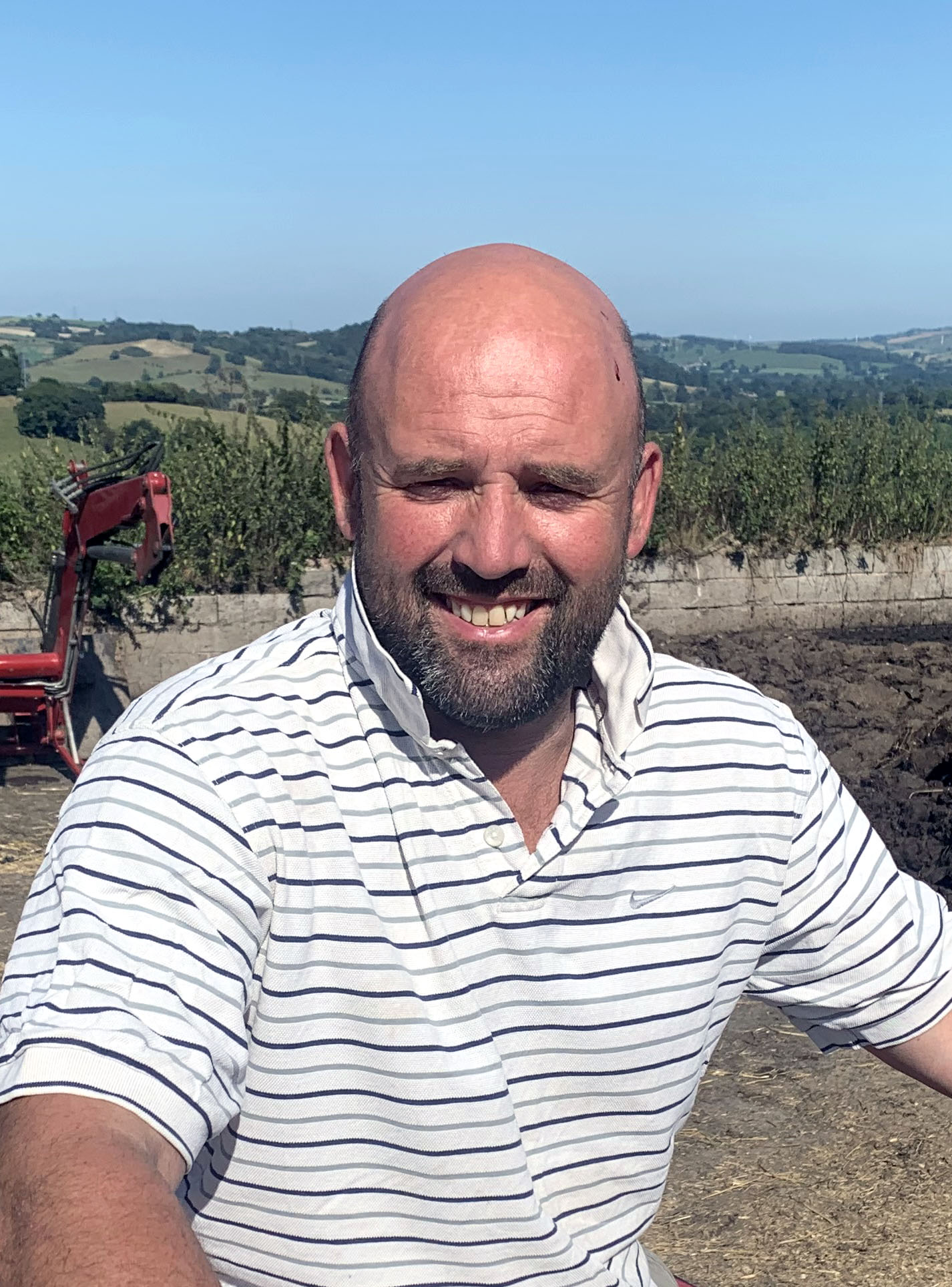
by Gwion Rowlands, Vice Chairman Meirionnydd FUW
I live in Gaergoed, Glanrafon near Corwen with my wife, Elain, and our children Lleucu 9, Saran 6, and Lliwen 3.
I am very interested in the Union’s work locally, attending the Meirionnydd Executive Committee regularly, and I enjoy discussing current issues. I have been a member of the Union’s Central Council for some years, and in May this year I was elected Vice-Chairman of the county branch. I consider this a privilege, and will do my best to assist and to be involved in the activities.
After leaving school, I spent a year at Llysfasi Agricultural College, followed by a year studying a Beef and Sheep Management course at Reaseheath College, Nantwich. Following this, I worked on a JCB farm in Uttoxeter, before spending 18 months on farms in Australia and New Zealand, and returning home to shepherd on local farms as well as working at home.
I now farm in partnership with my father and brother Gethin. We farm Gaergoed and Tyn Pant, Llidiardau, Bala which extends to approximately 240 acres between them and rent a further 420 acres. We keep around 2,200 ewes which include Welsh, Texel and Mule cross. All lambs are sold in Ruthin or Welshpool marts. We have 25 suckler cows crossed with a Charolais bull, and all the calves are sold as stores, the majority supplying the local slaughterhouse in Corwen or selling through Mold mart.
I believe that producing stock of the highest quality and keeping it local is very important. It is vital to keep the local economy thriving and sustaining communities.
Subsidies are a hot topic! Today, farming is like any other industry, and farms need to sustain themselves without relying on the "brown envelope”. Farms will need to have flexible systems and be more effective and profitable without relying on subsidies which are more relevant with the gradual phasing out of the Basic Payment Scheme.
I do not believe in schemes like Glastir on the whole. Mainly because they have resulted in reduced stock on our farms with no benefits. Many areas look poorer after following the scheme and the benefits to the environment are minimal. As farmers, we are natural environmentalists, and the countryside is at its best when it is successfully farmed.
Education and educating the public is paramount. As farmers and producers we should try to show our customers that our produce is sustainable, of the highest quality and that there are clear benefits to buying local. The carbon footprint of Welsh farms is generally very small and pointing a finger at us as farmers in this respect is insane, seeing as the government is opening the door to meat imports from around the world.


